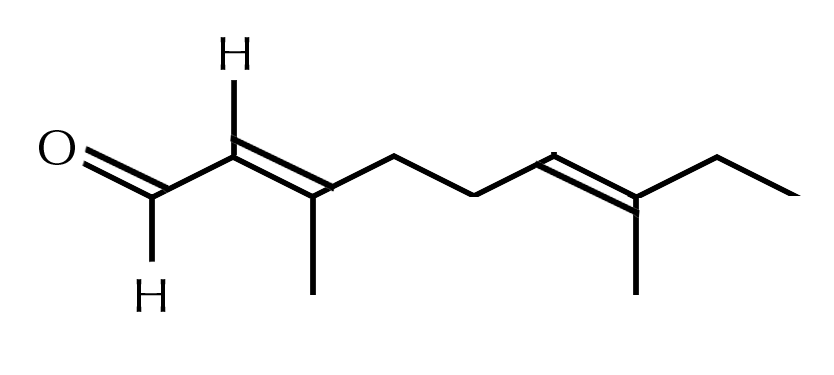What Is Citral?
Citral is a naturally derived ingredient that is added to cosmetics and skincare products as a fragrance due to its pleasant citrus scent. It also has the added benefit of having a mild antibacterial and anti-inflammatory effect.
Citral also referred to as lemonal, is either a pair or a mixture of terpenoids. Terpenoids are a large and diverse class of naturally occurring ingredients derived from terpenes. Terpenes are the naturally occurring aromatic compounds found in plants and are responsible for the scent of the plants they come from. While the term ‘terpenoid’ is often used interchangeably with ‘terpene’, they are actually slightly different. Terpenes are hydrocarbons, which means they consist entirely of carbon and hydrogen, while terpenoids contain additional functional groups.
Citral is present in the oils of several plants, including the following:
- Lemon myrtle (90 to 98%)
- Lemongrass (65 to 85%)
- Lemon verbena (30 to 35%)
- Lime (6 to 9%)
- Lemon (2 to 5%)
Citral can be colorless or a pale, yellow liquid. It is used to formulate a variety of cosmetics and skincare products, including aftershave lotions, bath products, moisturizers, perfumes and colognes, and other skin and hair care products.

Citral
the good:Helps to improve the scent of formulations and may have the ability to be both antibacterial and anti-inflammatory.
the not so good:Can be sensitizing to some skin types.
Who is it for?All skin types except those that have an identified allergy to it.
Synergetic ingredients:Works well with most ingredients
Keep an eye on:Sensitive skin types may want to avoid products with higher concentrations of citral.
What Are The Benefits of Citral?
Citral is an aroma compound used in cosmetics, perfumes, and skincare products for its citrus scent.
Antibacterial
In addition to functioning as a fragrance ingredient, citral has been shown to provide strong antimicrobial properties. A study published in Letters in Applied Microbiology found that citral showed appreciable antimicrobial activity against both gram-positive and gram-negative bacteria, as well as fungi. Additionally, the study found that the antimicrobial activity of citral was optimized at an alkaline pH. Thus, citral may be used as a preservative in the formulation of cosmetics and personal care products.
Anti-inflammatory
Citral may also possess anti-inflammatory properties. A 2017 study on mice found that citral showed a significant decrease in TNF-α (Tumor Necrosis Factor-alpha) levels in tests demonstrating anti-inflammatory activity. TNF-α is a key regulator of the inflammatory response. Vascular endothelial cells respond to TNF-α by undergoing a number of pro-inflammatory changes. Thus, by decreasing TNF-α levels, citral may function as an anti-inflammatory agent. It is important to note that one study doesn’t indicate a new causational link but it is an interesting potential property.
Bug repellent
Citral is one of the active components of citronella oil, which is a common ingredient used in insect repellents and citronella candles. In fact, citronella has been registered as a gentle, plant-based insect repellent in the United States since 1948. Some evidence suggests that citral, as well as the other active compounds in citronella, interfere with mosquito olfactory receptors. Citronella insect repellents have even been shown to repel dangerous Aedes aegypti mosquitoes, which are capable of spreading dengue fever and the Zika virus.
Is Citral Safe?
The United States Food and Drug Administration or FDA includes citral on its list of substances considered Generally Recognized As Safe (GRAS) as a synthetic flavoring substance. The safety of citral has been evaluated by the Research Institute for Fragrance Materials Expert Panel (REXPAN). Based on this evaluation, an International Fragrance Association (IFRA) Standard has been established. The IFRA Standard restricts the use of citral in fragrances because of potential sensitization and recommends that citral only be used in association with substances that prevent a sensitizing effect.
Even though citral is a natural ingredient that is derived from plant sources, it can still lead to potentially serious allergic reactions. Symptoms of an allergic reaction to citral may include rashes, blisters, itchy skin, and swollen eyes and lips. It’s important to be aware that just because something is natural doesn’t mean it completely safe or without side effects. Often the opposite is true.
Due to the possibility of an allergic reaction, those with sensitive skin should try to avoid citral or perform a patch test with any product containing this ingredient.







